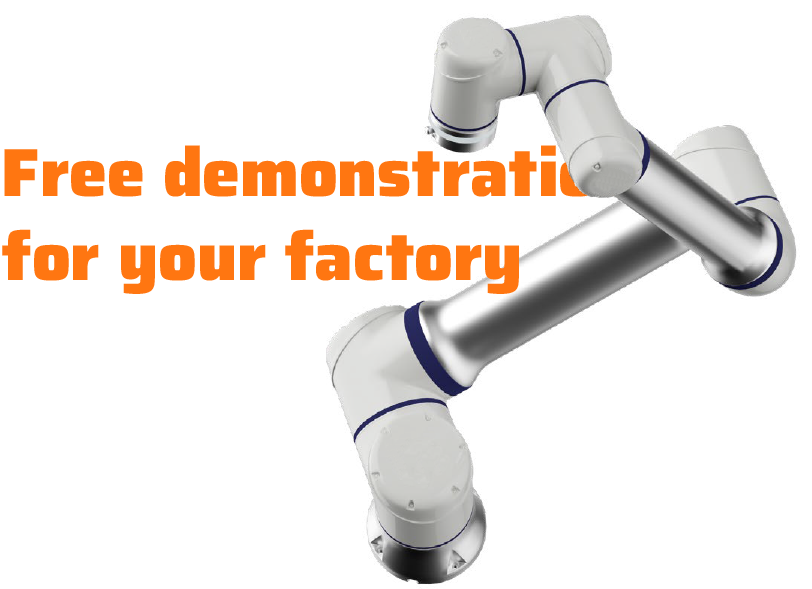
The Robot Control System (RCS) facilitates various functions that enable efficient task configuration, task scheduling, robot dispatching and maintenance management. Robot Control System (RCS) of Rozitek offers various functions, including:
– Map Plan
– Task Settings
– AMR Config
– Rack Settings
– Beeper Config
– Elevator Config
– Task Management
– Statistics
You can find all current information about Robot Control System here:
The Task Settings Function of the Rozitek’s Robot Control System (RCS) allows for settings related to the task configuration, task allocation and execution of autonomous mobile robot (AMR), enabling operators to fine-tune the behavior of the robot system to align with specific task requirements and improve process in warehouse. It encompasses several key features:
1. Task Templates:
The Task Templates function within the Rozitek’s Robot Control System (RCS) allows users to create predefined task templates with predefined parameters and settings. This function streamlines the process of creating and managing repetitive or similar tasks by providing a template that can be easily replicated and customized.
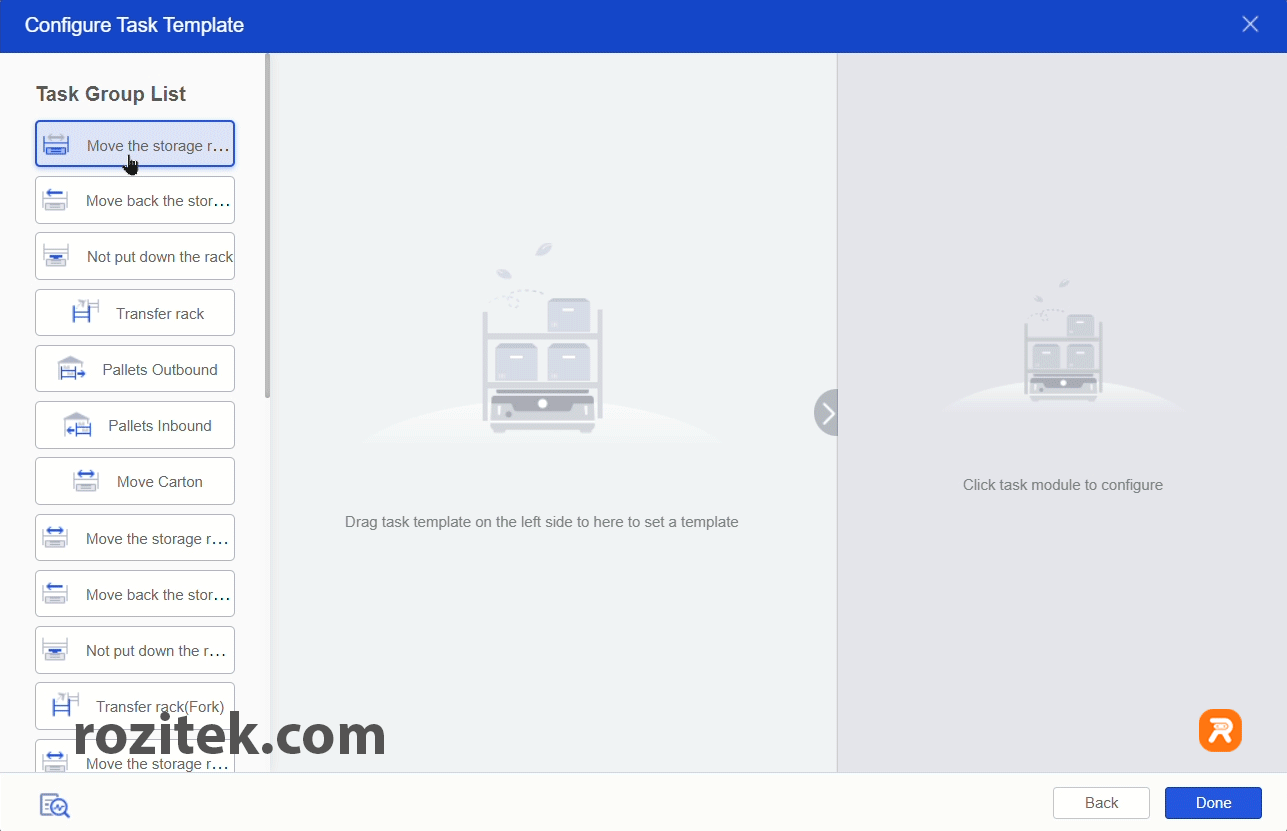
This function in RCS provides a powerful tool to ensure consistency, improve process and simplify task allocation.
2. Sub-Task Types:
The Rozitek’s Robot Control System enables the Sub-task Types function, which allows for the categorization and differentiation of tasks based on specific characteristics or requirements. Each sub-task type can have its own set of parameters, settings, or rules. Users can define specific attributes and behaviors for each sub-task type, allowing for customized task execution based on the requirements of that task type.
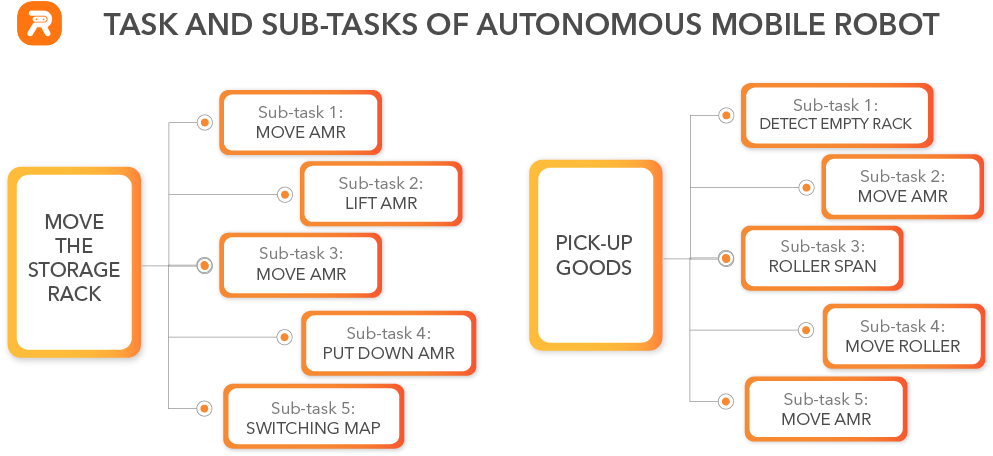
By utilizing this function in RCS, users can effectively categorize, prioritize, and manage tasks based on their specific characteristics to improve process, enabling overall performance optimization.
3. Route Configuration:
With Route Configuration function, users can define and customize the optimal routes that robots should follow for specific tasks within a warehouse. It involves setting up waypoints, checkpoints, and defining rules for AMR navigation and movement.
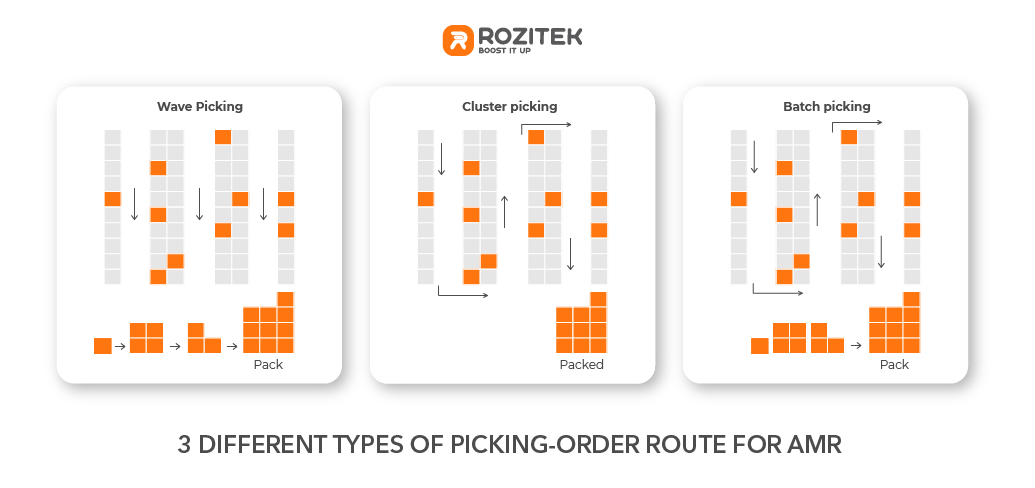
Depending on the characteristics of warehouse and products, operators can guide AMR to navigate through the facility with the optimal route, resulting in effective task allocation, performance optimization and safety within the warehouse.
Discover our intralogistics solutions and AMR solutions for your warehouses and factories at:
4. Transfer Order Settings:
The Transfer Order Settings function allows users to customize the settings related to the transfer of materials or goods between different locations within the warehouse. This allows the system to allocate resources and prioritize the execution of high-priority orders, ensuring timely and efficient movement of goods.
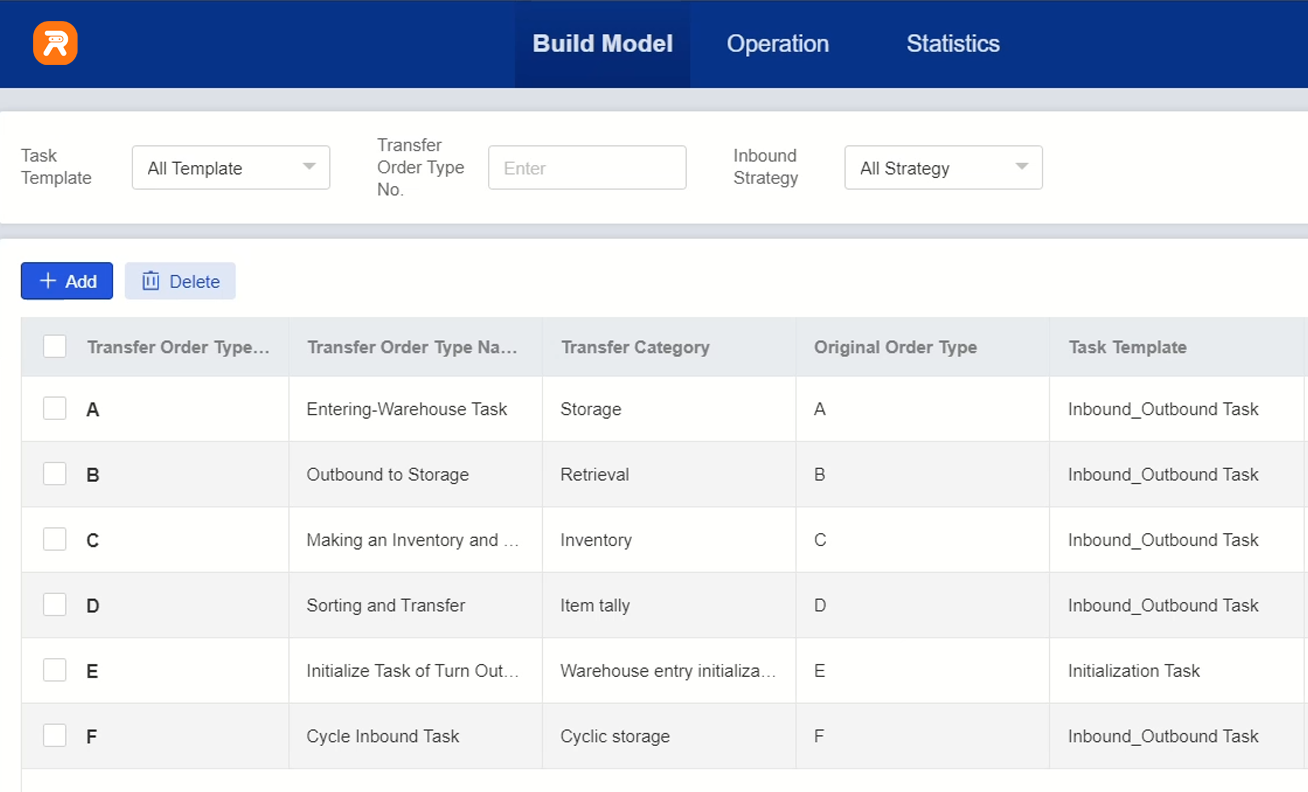
By utilizing the Transfer Order Settings function, users can customize and optimize the management and execution of transfer orders within a warehouse or logistics environment, enhancing efficiency, accuracy, and productivity.
These Task Settings functions within the Rozitek’s RCS facilitate customized task configuration to improve process, enabling effective task allocation and performance optimization. Especially, those functions also aid in identifying errors promptly, allowing for timely resolution and problem-solving.
To get a comprehensive guide and assistance on Robot Control System (RCS), reach out to our team of experts today!
ROZITEK – INTELLIGENT INTRALOGISTICS SOLUTIONS
Email: info@rozitek.com
Hotline: (+84) 36 918 3998

Industrial Revolution: From Steam Power to Artificial Intelligence
The Industrial Revolution is one of the greatest turning points in human history, reshaping the entire economy, society, and civilization.

Revolutionizing Warehouses with BEAST ROBOT (CTU) Technology: Optimizing Warehouse Management Efficiency with AGVs and Smart Warehouse
Contents List In the fast-evolving world of warehousing, automation is transforming industries, and one standout innovation is the BEAST ROBOT.

How to Choose the Right AGV System for Your Factory: Rozitek’s Approach
Selecting the ideal Automated Guided Vehicle (AGV) system is crucial for achieving streamlined operations, improved efficiency, and long-term cost savings.

